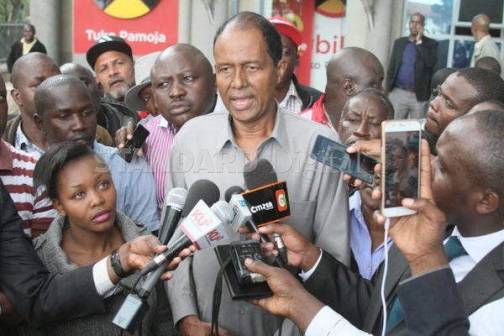×
The Standard e-Paper
Kenya’s Boldest Voice

In a country replete and, unfortunately, obsessed with politics, it is important for the media to offer information, analyses and understanding of people running for political offices.
This is especially urgent now as people become interested in and compete for elective positions as seen in the recent primaries.